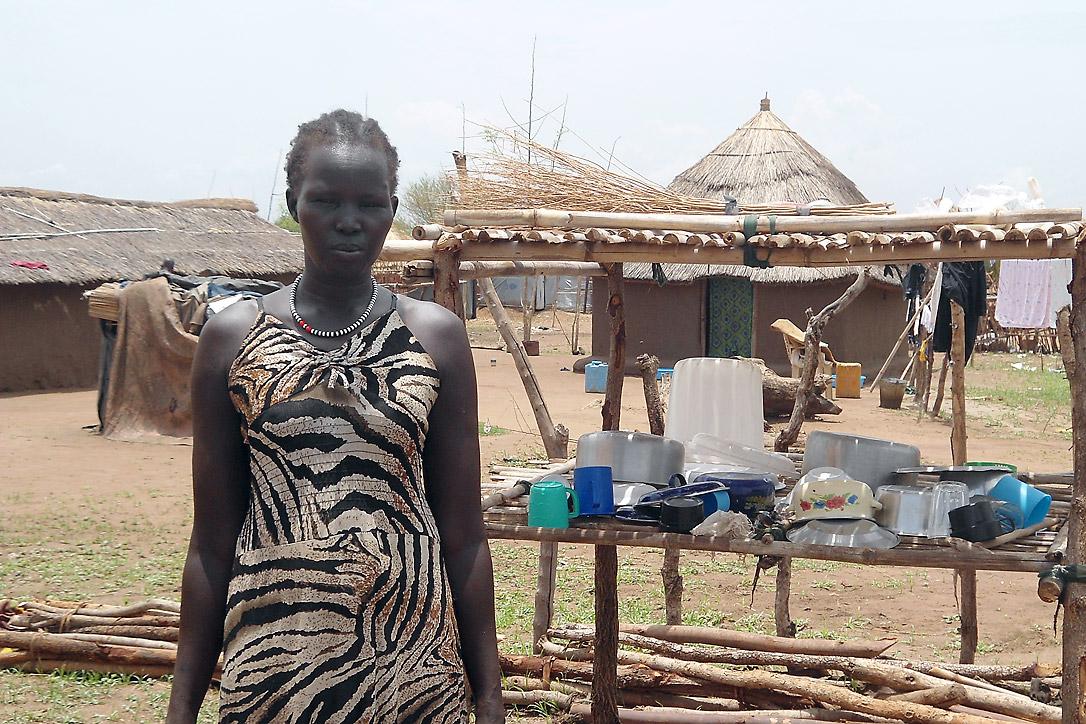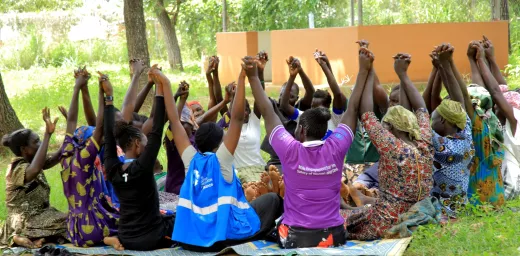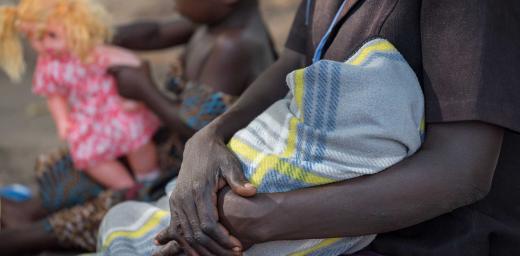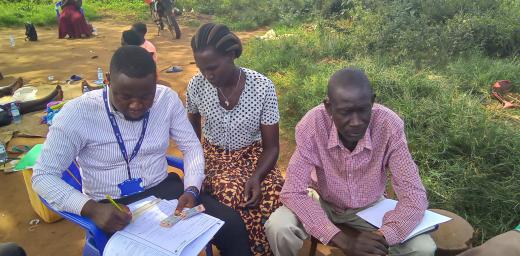Water and sanitation in Njumanzi

Adhieu Choul beside her drying rack. The mother of six has become an ambassador for good hygiene in the community. Photo: LWF Uganda
How LWF improves water supply and sanitation in the refugee settlement
(LWI) – These days, the Njumanzi settlement is growing again. Renewed insecurity in South Sudan has caused people to cross the border into north Uganda. As Uganda recognizes them as refugees immediately, they are then sent to one of the refugee settlements in Adjumani district, north Uganda, where The Lutheran World Federation (LWF) is in charge of water, sanitation, protection and other assistance.
Adhieu Choul is one of them. The 41-year-old mother of six arrived with her family this year, fleeing unrest in South Sudan. To her and her children - the eldest 17, the youngest only four - Njumanzi has become a temporary home. “On arrival, my family was provided with basic items including jerry cans, saucepans, polythene sheets and blankets,” she recalls. Many good were given out by the LWF. “The organization is well known amongst the refugees,” she adds.
LWF is not only known for distributions of seeds and relief goods. As the organization in charge of water supply, hygiene and sanitation, LWF involves residents and refugees in the discussions on hygiene and sanitation conditions. Choul's family has participated in hand-washing campaigns and jerry can cleaning campaigns, promoting practices to reduce disease.
“My children have now learnt how important it is to effectively wash their hands with soap, and now do it regularly,” Choul says. She also shows off her collection of 15 jerry cans of varying sizes which are used to transport water from boreholes drilled by the LWF. The lids are pierced and tied to the grips to prevent them being misplaced.
“The caps keep the children from dropping stones into the jerry cans and also prevent insects from entering the water container,” she comments. In addition, LWF has promoted house visits so as to work with households in promoting hygiene and sanitation.
Following the various sessions of hygiene and sanitation within the settlement, the children helped dig their first pit latrine which unfortunately later collapsed due to unstable ground. Choul is now saving money to construct another. “Without a latrine, we cannot stay in this home. So I am already planning for that,” she says.
Simple measures like these have greatly reduced the prevalence of water-borne diseases among the refugees in Adjumani. Often they cost close to nothing and can be made from local materials. LWF encouraged people to use drying racks for their dishes and construct so-called “tippy-taps”, a structure consisting of a few sticks, a string and a jerry can which allows people to wash their hands without having to hold the jerry can.
In schools teachers have been trained to teach good hygiene using through play. Toilets and nearby boreholes also greatly increase the attendance and discipline of the students (Link to “Boreholes for education story”). Choul has become an ambassador for improved hygiene and sanitation. Because the hygienic conditions at a neighbor’s house also impact her own, she now promotes hygiene and sanitation measures in the community.
The WASH work implemented by LWF in north Uganda is funded by the Bureau of Population, Refugees, and Migration, of the US Department of State.
A contribution by the Adjumani WASH team, LWF Uganda. Edited by LWF Communications.





